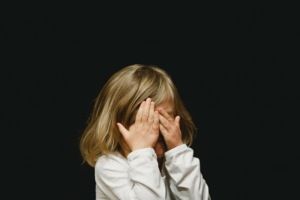News
Science Round-Up: Childhood stress can lead to premature death – report
This article is more than 5 years old.

Probably best not to add to her stress (photo: Pxfuel)
According to a new study published by the University of Copenhagen, a stressful childhood increases the risk of premature death.
Children who have been exposed to great stress have a 4.5 times greater risk of dying in early adulthood, between the ages of 16 and 36, the new research discovers.
Not only stressed related death
The higher mortality rate is primarily the result of the increased likelihood of the the young adults committing suicide or having an accident.
However, the study also reveals there is a higher risk of dying from cancer among those who had a stressful childhood.
Fewer insects in Denmark
A new scientific report from Aarhus University has discovered that the number of butterflies, bees and beetles is decreasing. Researchers believe this is due to their ever-changing habitats where the amount of flowers, dead wood, carrion, manure, and specific plants is in freefall. To improve conditions for insects, the report urges a reduction of pesticide usage in nature areas and more varied vegetation in urban areas.
Aarhus University launching green-initiatives
Aarhus University is launching 44 green initiatives as part of its climate strategy. The initiatives include a fixed temperature of 21 C during the season when central heating is thought necessary, waste-sorting pilot projects, and developing a model for collecting coffee grounds from the coffee machine. The university expects the initiatives to lead to significant reductions in carbon emissions.
Prominent Danish researcher returns home from Oxford
The esteemed Danish researcher Mads Gyrd-Hansen is moving to the University of Copenhagen after spending many years at Oxford University. According to his new employer, Hansen will take over the new research centre for skin and immunology. He is receiving a grant from the Novo Nordisk Foundation of 25 million kroner to start a new research group in Copenhagen. Previously the researcher was a group leader at the Ludwig Institute for Cancer Research at Oxford University.










































